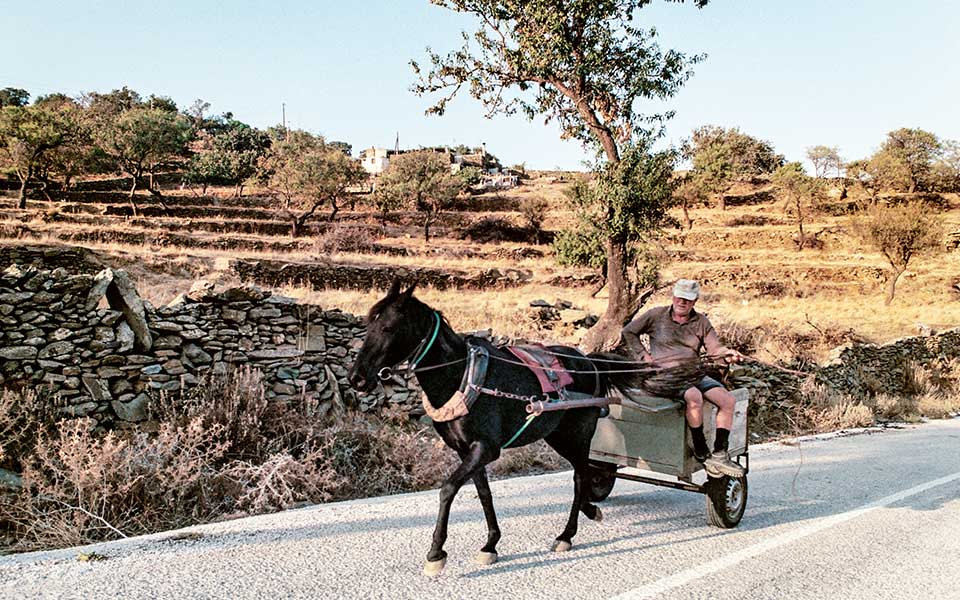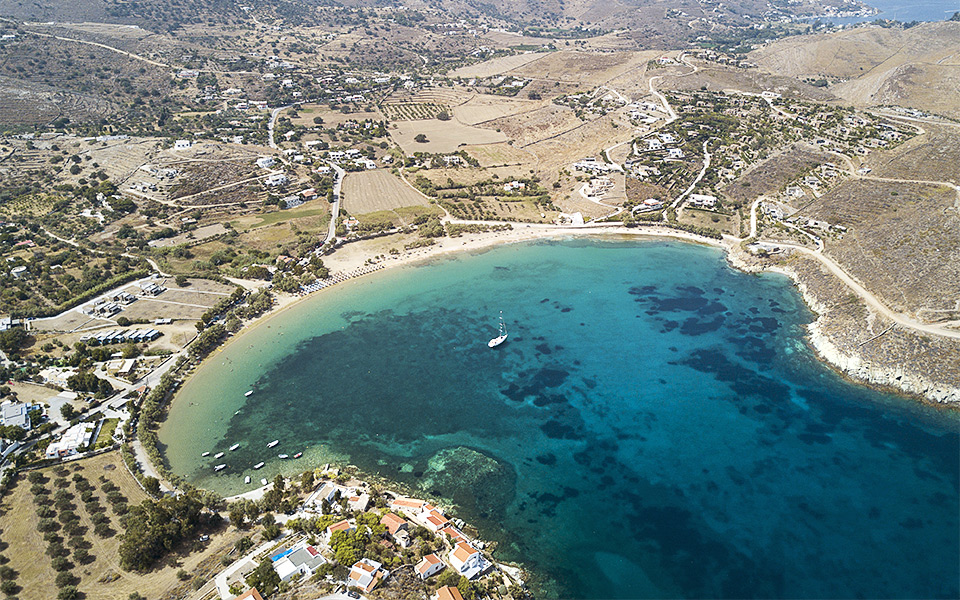Lefkada in 72 Hours: What to Do, See,...
From traditional dances and global rhythms...

© Marika Tsouderou
I always had a ready excuse for not visiting the island of Kea, also known as Tzia, which lies a convenient one-hour ferry ride away from the coast of Lavrio in southeastern Attica: “It’s so close; we’ll go another time.” Well, the years went by and that “other time” only came one weekend earlier this summer. Friends and colleagues had all sorts of recommendations that would ensure my family had a lovely time, with the list of suggestions growing so long we’d need well over a week to cover them all. So, we whittled it down to size and had two absolutely wonderful days on the Cycladic island that is closest to Athens.
We started our first day with a swim at Xyla Beach, on the island’s east coast, which is partially serviced with umbrellas and loungers but still had plenty of room for us to set up our own beach tent. Sykamia and Spathi are also gorgeous, though none offers any services (you’ll have to take everything you may need with you) and the way to the first is along a very bumpy dirt track. Kea is said to have more than 50 beaches, so we didn’t even make a dent. Otzias is recommended for families with young children, but it gets very noisy and crowded, and the loungers stretch all the way to the water’s edge.

On the drive around the western part of the island, at Ellinika.
© Marika Tsouderou
We watched the sun set at Gialiskari, a sandy serviced beach near the main town, Ioulida, with quite a few tamarisk trees providing shade. There’s a bar at one end that does get a bit loud, but the music eases off later in the afternoon. The beaches at Pisses and at Koundouros, with its crystal waters, are also lovely.
We went to Vourkari for breakfast and, as we strolled around the village, we came across an old Athenian favorite, the all-day cafe Peek A Bloom, once located in an arcade on Lekka Street in the capital until the space was leased by the neighboring hotel. It moved to Kea two years ago, setting up on the seaside road at Vourkari, overlooking its small harbor. Its coffee comes from Mind The Cup – a nice roasted Brazilian variety – and is possibly the best on the island. It also serves breakfast, cakes, sandwiches and drinks.

The bay of Otzias
© Marika Tsouderou
Our walk around Ioulida, the island’s low-profile capital, meanwhile, involved an ice-cream stop at Tyrakeion, where the Mykoniatis brothers make their own ice cream and cheese, including a very rich, slightly salty graviera. Their ice cream is very good and you can tell that it’s homemade from its slightly runny consistency. We particularly liked the rice pudding flavor, which is made with good local milk and contains a bit of rice and cinnamon to complete the homemade feel. We also found Tyrakeion ice cream in other parts of the island and even took some back home (Tel. (+30) 22880.228.53).
Driving along the country road from Ioulida through the hinterland to Kato Meria, near the southwestern coast, we saw a forest of oak trees and lots of tidy grapevines arranged in terraces – the lushness of the landscape made us forget that we were in the dry Cyclades for a moment. But Kea has plenty of green spots and around 60% of its forests and woods are part of the Natura network of protected areas.

Dinos’ delicious handmade cold meats at Poularakia.
Our destination at Kato Meria was Ta Poularakia, a charming roadside kafeneio run by Dinos Vrettos and Eleni Rousounelou. Dinos is a native and grew up in a family of livestock farmers, learning how to butcher pigs and make sausages in boyhood. A passionate meat-eater, he decided to open a taverna in his village, in a space that had been closed for years.
“What I used to do for guests at home, I now do for the people who come here,” he says.
Dinos has a small farm with 160 sheep and goats, and also raises black pigs and white pigs, from which he makes three kinds of delicious sausages. His loza – the island’s traditional aged cold meat – is among my top three favorites in all of the Cyclades. Its dark color is due to the age of the pig (the older, the darker the meat) and to the seasoning of pepper and wine. It is smoked with fig, pear, oak and sage, and “needs a cold northerly wind to dry, a process that takes 40 days,” he explains.
His other two types of sausages are one with lots of spices, wine and fresh savory, and the other a long-aged one that he calls Alladin, with paprika and garlic. Apart from all these cold meats, we also had delicious black pig pork chops, very nice lamb chops and local cheese. The horiatiki salad, with its juicy tomatoes at room temperature was another sign that this place pays attention to detail (Tel. (+30) 22880.243.51).
The businesses and products recommended in this article were selected by the writer and serve no commercial purposes.
This article originally appeared in Kathimerini’s monthly food magazine, Gastronomos.
From traditional dances and global rhythms...
Discover Greece’s islands in September with...
Discover Leros, a hidden Greek island...